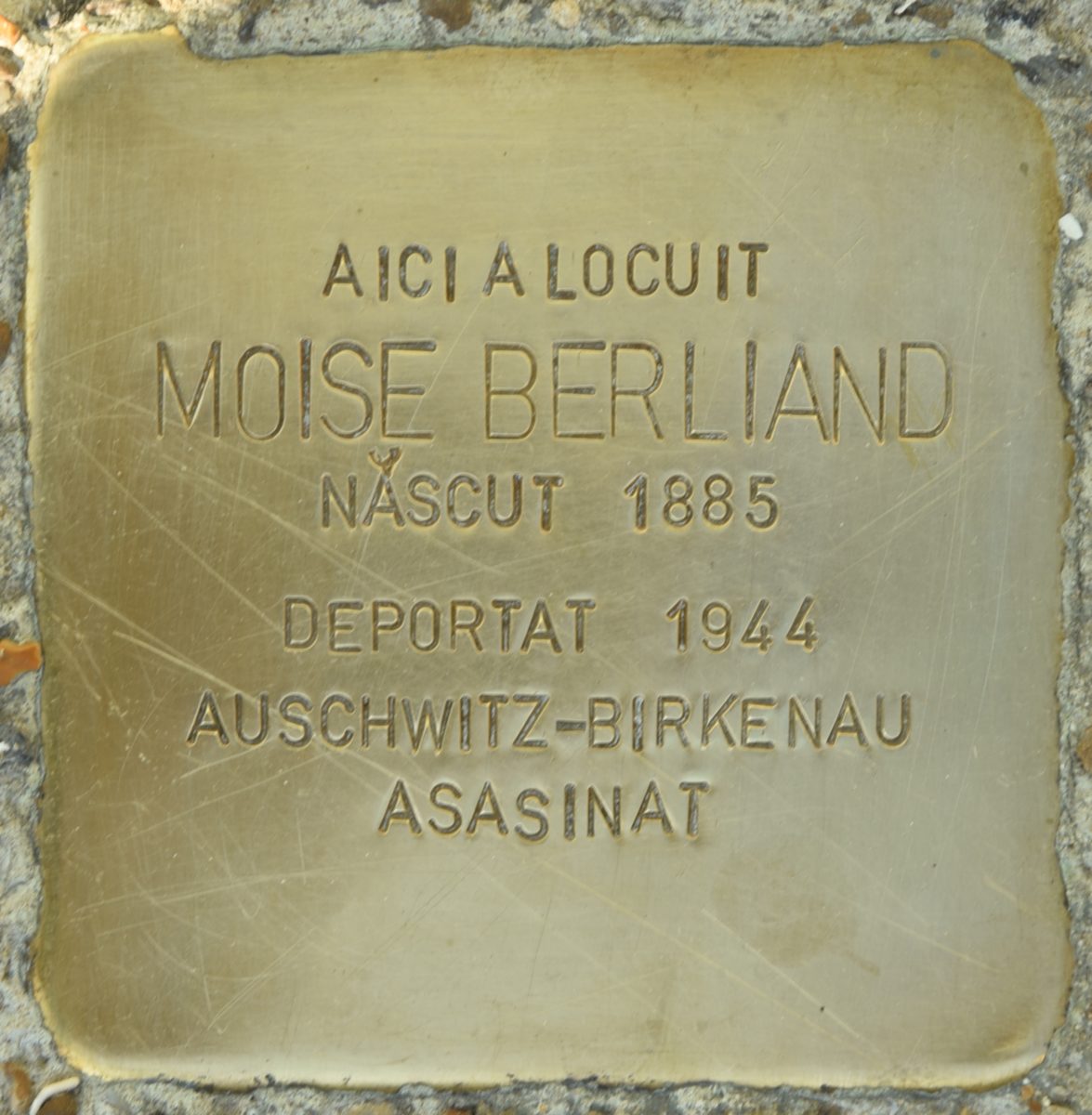In front of the former home of the Berliand family, there is a stumbling block commemorating Moise Berliand. The stumbling blocks memorial project draws attention to individual victims of National Socialism in many European countries. Brass-plaques are set into the sidewalk in front of the places where they lived before they were arrested, escaped or deported. In Chişinău, at Strada Armenească 27b, there is also another stumbling block commemorating Bunia Brun.
Moise Berliand was born in Chişinău in 1885, as the grandson of the well-known leader of the Chişinău Jewish community, Solomon Berliand. In 1928, in the interwar period, he emigrated from Bessarabia to France. There he was arrested. In March 1944 he was deported to Auschwitz-Birkenau, where he was murdered.
Thousands of Jews from Chişinău were murdered between 1941 and 1944.
Some Bessarabian Jews managed to escape, right before the arrival of Romanian and German troops, such as the family of 15-year-old Raisa Roitman, who came from a small town on the Dniester:
On 16th July 1941, my parents decided to leave, right after Chişinău was occupied. Mother thought that things would be settled down within a couple of days and we would be back home. She only took some documents and money. She even left her modest jewelry at home. Mother locked the house and gave the keys to the Moldovan neighbor, asking her to watch over the house. We didn’t take most of our belongings, we just had light luggage. Only Motle took his favourite thing – his backgammon. I still keep it. I don’t remember how we met our relatives on our way to evacuation. Soon the families of my mother’s relatives joined us. […]
We walked along the road together with other fugitives. There were frequent bombings and we had to hide in the field or in the forest. There was screaming and sobbing. There were wounded and killed people. Sometimes we went to the Ukrainian villages. The hosts were very hospitable. They let us take a bath in the bathhouse. We stayed overnight in their house. They also fed us, gave us milk and clean clothes. […] There was no way we could return home. In each village that we came to, we got together by the radio at 12am to listen to the news summaries. We found out how rapidly the Germans were moving forward in our land.
Those who fled suffered from hunger and uncertainty, as Raisa Roitman reports in the Centropa interview. The family – like many other evacuees from Chişinău and Bessarabia – fled far into Central Asia. Raisa’s younger brother, Motle, died malnourished from typhus. The only thing left of him was his backgammon game. After the war ended, the family returned home to Chişinău:
In late December 1944, right after the liberation of Bessarabia we left for home. Of course, our way back home seemed much shorter to us. We had to change trains and on January the third, 1945 we arrived in Chişinău. The city was dark, devastated and dilapidated. Father decided that we should stay in Chişinău […]. From our pal’s letters we found out that our house was demolished as well. So we didn’t go back to Vadul-Raşcov. There were a lot of unoccupied basements, and we settled in one.
